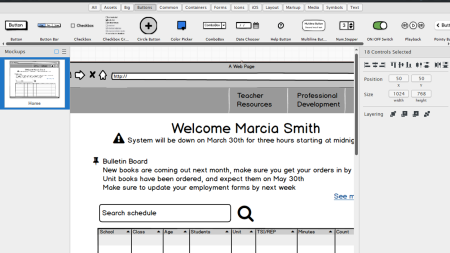
Related Class
Old Internet Explorer Browsers Discontinued
- Published on

Microsoft announced this week that older versions of Internet Explorer (IE) have been discontinued. In Microsoft’s official terms, the old IE browsers have reached the “end of life” and must be upgraded to receive support from the company. Support has officially ended for Internet Explorer versions 8, 9, and 10. A final patch of security updates was released this week, but no additional security updates, bug fixes, or other patches will be released for these versions. Microsoft is encouraging users of the older versions of Internet Explorer to upgrade to the latest versions at no cost in order to receive support. These versions of IE still work, and can still be used, but they will not be supported, and if bugs or security flaws are discovered, they will not be fixed. Users of these older browsers should upgrade to IE 11, or if Windows 10 is installed, the browser Edge is provided as part of the most recent operating system. In Windows 10, Edge is the replacement for Internet Explorer. With this announcement from Microsoft, IE 11 and Edge are the only two browsers being supported by Microsoft.
Market Share of discontinued Internet Explorer Versions
The market share of Internet Explorer versions that have been discontinued and are impacted by this announcement is approximately 20 percent of all web traffic. Of all Internet traffic, IE version 8 has a 9 percent market share, while IE 9 has 7 percent, and IE 10 garners 4 percent.
Internet Explorer (IE) | Market Share |
Internet Explorer 8 (IE8) | 9% |
Internet Explorer 9 (IE9) | 7% |
Internet Explorer 10 (IE10) | 6% |
IE Versions for usability and UX testing
Even with the older versions of Internet Explorer being termed end-of-life, UX and web designers may still need to use older versions of IE for usability testing purposes. Use data from web analysis such as Google Analytics to see the browsers being used by visitors to a site. Any browser that is used by more than 5% of site visitors should be tested to make certain users are able to effectively navigate and use a site. These UX testing considerations and processes are covered in the UX design principles class and other UX courses that address usability testing processes.
Why IE users should upgrade to IE11 or Edge
There are several key reasons that users of Internet Explorer should upgrade their browser. The most important reason to upgrade IE is access to security patches which reduce the risk of viruses. Newer browsers also reduce the risk of malicious attacks on a computer which compromises security, and can lead to the theft of data. Organizations that are regulated also may want to upgrade from older versions in order to remain compliant with privacy and security laws, which IE8 may not support. Older browsers do not support access to modern websites that use HTML5 and CSS3, while these are supported more fully with IE11 and Edge.
About the author
Jennifer Smith is a user experience designer, educator and author based in Boston. She has worked in the field of user experience design for more than 15 years.She has designed websites, ecommerce sites, apps, and embedded systems. Jennifer designs solutions for mobile, desktop, and iOT devices.
Jennifer delivers UX training and UX consulting for large Fortune 100 companies, small start-ups, and independent software vendors.She has served as a Designer in Residence at Microsoft, assisting third-party app developers to improve their design solutions and create successful user experiences. She has been hired by Adobe and Microsoft to deliver training workshops to their staff, and has traveled to Asia, Europe, India, the Middle East, and across the U.S. to deliver courses and assist on UX design projects. She has extensive knowledge of modern UX Design, and worked closely with major tech companies to create educational material and deliver UX workshops to key partners globally. Jennifer works with a wide range of prototyping tools including XD, Sketch, Balsamiq, Fireworks, Photoshop, Illustrator, and Blend for Visual Studio. She also works extensively in the fields of presentation design and visual design.
Jennifer is also an expert on Photoshop, digital image editing, and photo manipulation. Having written 10 books on Photoshop, and having consulted and provided training to major media companies and businesses around the globe.
Jennifer is the author of more than 20 books on design tools and processes, including Adobe Creative Cloud for Dummies, Adobe Creative Cloud Digital Classroom, and Photoshop Digital Classroom. She has been awarded a Microsoft MVP three times for her work with user experience design in creating apps for touch, desktop, and mobile devices. Jennifer holds the CPUX-F certification from the User Experience Qualification Board and assists others in attaining this designation in leading a UX certification course at American Graphics Institute. She is a candidate for a Master’s degree in Human Factors in Information Design.


